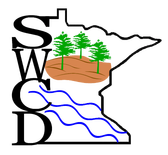WEST POLK SWCD SUPERVISOR ELECTIONS
The Secretary of State is the chief election official in Minnesota and is responsible for the administration of the Minnesota election law. Find more information for voters and candidates HERE.

What does it take to be a soil and water conservation district Supervisor?
Soil and water conservation districts (SWCDs) are special purpose units of government that manage natural resource programs. Minnesota’s 90 SWCDs cover the entire state; their boundaries usually coincide with the county lines. Each SWCD is run by a board of five elected Supervisors.
To be a Supervisor, you need:
Knowledge
Supervisors must have - or be willing to learn - some basic knowledge to effectively carry out their responsibilities. They must understand:
Supervisors must be concerned about:
Supervisors must be willing to take an active leadership role in the community. This can involve:
Soil and water conservation districts (SWCDs) are special purpose units of government that manage natural resource programs. Minnesota’s 90 SWCDs cover the entire state; their boundaries usually coincide with the county lines. Each SWCD is run by a board of five elected Supervisors.
To be a Supervisor, you need:
Knowledge
Supervisors must have - or be willing to learn - some basic knowledge to effectively carry out their responsibilities. They must understand:
- some of the fundamentals about the environment and how it works;
- the relationship between land use decisions and the environment;
- the effect environmental decisions have on other aspects of our lives; and
- local concerns, attitudes and needs.
Supervisors must be concerned about:
- local conservation needs,
- maintaining and improving water quality; and
- protecting our soil.
Supervisors must be willing to take an active leadership role in the community. This can involve:
- setting local conservation priorities and develop, implement, and evaluate programs to meet those goals;
- educate and inform friends, neighbors, landowners, operators, general public, and local, state and federal legislators on conservation issues and programs;
- working with other local government units, state and federal agencies, and other elected officials;
- setting a positive example;
- taking unpopular stands;
- balancing economic needs with environmental concerns; and
- sacrificing short-term gains for long-term benefits.